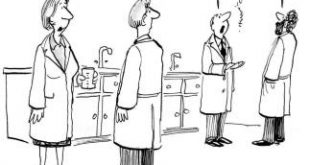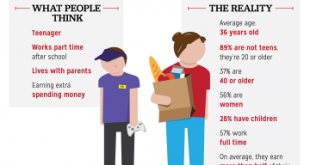[embedded content] To my children. Never give in. Never give up. Advertisements
Read More »Poupée de Cire, Poupée de Son
Poupée de Cire, Poupée de Son [embedded content] France Gall 1947-2018. R.I.P. Advertisements
Read More »Downtown
[embedded content] Advertisements
Read More »Annie Lööfs unkna Ayn Rand vurmande
Annie Lööfs unkna Ayn Rand vurmande I sin dagbok från 1928 citerade Ayn Rand — den iskalla egoismens översteprästinna — med gillande ett uttalande från den då mycket omtalade William Edward Hickman – “What is good for me is right.” Rand är entusiastisk och skriver: “The best and strongest expression of a real man’s psychology I have heard.” Senare modellerar hon en av alla sina hjältefigurer – Danny Renahan – efter sagde Hickman. Renahan beskrivs som “born...
Read More »On the real-world irrelevance of game theory
On the real-world irrelevance of game theory It has been argued that some ascription of rationality plays a crucial role in particular in game theoretic modeling from a participant’s point of view. However, ascribing some kind of ideal reasoning process symmetrically to all players in the game, it becomes very unclear whether we as analysts can truly adopt a participant’s attitude to such an idealized interaction. After all, we are as a matter of fact only...
Read More »Keynes and the ‘natural’ rate of interest
Keynes and the ‘natural’ rate of interest Keynes’s signal contribution was to switch the emphasis from interest rate adjustments to changes in income as the key macroeconomic adjustment mechanism. In so doing, he argued that the interest rate and asset prices adjust to clear balance sheets incorporating stocks, not flows, of financial claims. He pioneered national income accounting which now reveals the importance of leakages due to business saving, taxes,...
Read More »Kristdemokratiskt magplask
Kristdemokraterna (KD) kräver litteraturkanon för invandrare. Kanske något för gamla Livets ordare också … [embedded content] Advertisements
Read More »Dani Rodrik’s Ten Commandments
Dani Rodrik’s Ten Commandments Dani Rodrik is not satisfied with the critique of mainstream economics put forward by yours truly and other mostly non-orthodox economists. So he has put up a list of ten commandments for economists, hoping thereby to somehow ‘save’ mainstream ‘the model is the message’ economics from the critique. The two central commandments are 3. Make your model simple enough to isolate specific causes and how they work, but not so simple...
Read More »‘Little things I should have said and done’
‘Little things I should have said and done’ [embedded content] Advertisements
Read More »The truth about the minimum wage
The truth about the minimum wage It has been more than eight years since many of the United States’ cashiers, dishwashers, janitors, lifeguards, baggage handlers, baristas, manicurists, retail employees, housekeepers, construction laborers, home health aides, security guards, and other minimum-wage workers last got a raise. The federal minimum wage now stands at just $7.25. In real terms, these workers’ earnings have declined by nearly 13 percent since the...
Read More » Lars P. Syll
Lars P. Syll





